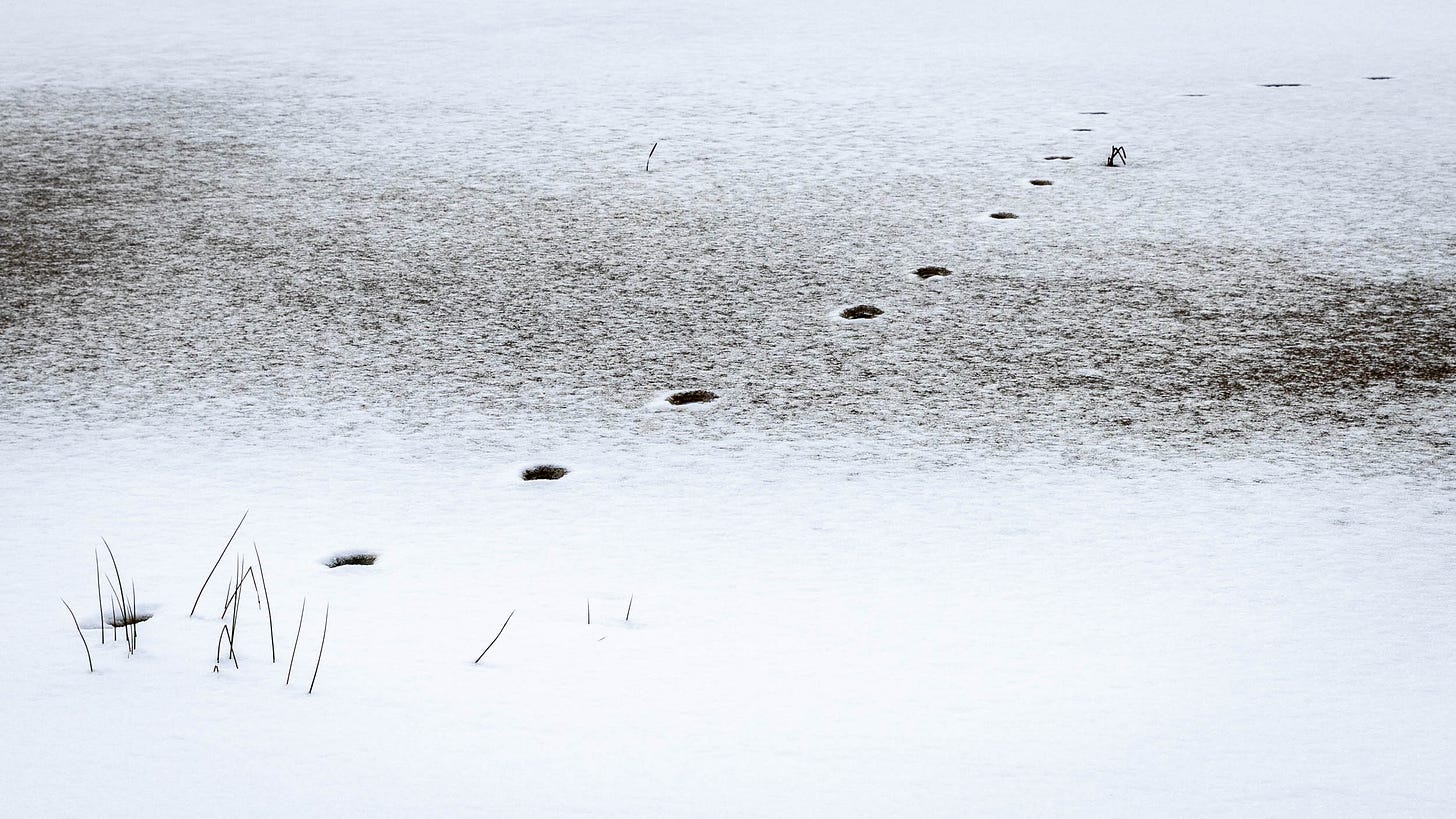Neither Here Nor There: The Loneliness of Being Unknown
Traces that fade — on the loneliness of being unknown.
This is part 3 of my 7-part essay series, Neither Here Nor There: Loneliness, Belonging & Othering, that I’m sharing here on Substack. You can find the introduction and series hub here.
Loneliness for me was rarely about being alone. It was about the ache of disconnection, the sense that no one quite knew where I had been or who I really was. Over time, I began to understand that this ache wasn’t just something to endure—it could be transformed into a way of seeing.
For TCKs, loneliness is rarely about being physically alone. It's the ache of emotional disconnection—the sense that no one truly knows where you've been and who you are. But for those of us who create, this loneliness becomes more than just emotional state; it becomes material, subject matter, the very condition that makes art possible.
It's saying goodbye too often and learning to find beauty in impermanence. It's forming fast friendships that fade with the next move, and discovering that loss can be transformed into lasting work. Psychologists note that frequent relocations and cultural transitions can erode a stable sense of belonging. As described in various TCK reflections, it's often not the loneliness of isolation, but "the loneliness of being unknown." For the creative person, this unknowing becomes a kind of freedom—no one expects you to fit a particular mould when no one knows what mould you came from.
For a while I struggled to find my photographic 'voice'—that singular style or approach that photographers are supposed to develop. I couldn't identify it, couldn't pin myself down to one way of seeing. Eventually, I realised that my shifting focus was not a flaw, but a form of coherence in itself. I'm comfortable with that restlessness now. That's where the freedom comes in—not having to commit to being one kind of artist, one kind of person, because consistency was never really an option anyway.
While this loneliness may begin in childhood, its creative possibilities ripple out far beyond it. When we "settled" in Aberdeenshire, I arrived without a strong sense of where I'd come from, and without the tools to attach myself to where I'd landed. Five decades later, having lived in or near Inverness since the late 1980s, I still feel on the edge of things—present, but not quite anchored. That edge, I've now learned, is where the best work happens.
As Thomas Wolfe wrote with aching clarity: "The whole conviction of my life now rests upon the belief that loneliness... is the central and inevitable fact of human existence."³ I don't know if that's true for everyone, but I do know that for those of us who never quite learned how to belong, it becomes the raw material from which we build meaning.
I remember sitting on my bed in university halls of residence—technically surrounded by hundreds of people, including the five others in my flat—and feeling the loneliest I had ever felt. I didn't lack company. What I lacked was connection. And I didn't know how to begin. In that moment, I only felt the crushing loneliness. I wish I had understood then what I could do with it. It's only after decades of wrestling with trying to understand who I am and why I am the way I am that I've had the realisation: this disconnection wasn't just something to endure—it was something I could explore, transform, make into something larger than my own experience.
What’s the difference, for you, between being alone and being unknown?
That realisation changed everything: loneliness was no longer only absence, but also presence—a presence that could be made visible through words and images. In the next post, I’ll explore how being “othered” shaped not only how I saw myself, but how I learned to see the world.
Next instalment: Through the Eyes of the Other
³ Thomas Wolfe (1900–1938) was an American novelist whose work explored themes of identity, memory, and emotional longing. The quote is from his essay "God's Lonely Man," which reflects on loneliness as an essential part of human existence.



For me, being alone is where I'm most useful and at peace. My mind is clear without the chatter, and I know myself completely. Being unknown, though, is always present when people are around—that sense of being fundamentally unseen despite being in company.
This is well written and it resonates very much. I like being alone, but not being lonely. These are two totally different states of being and come with different feelings. And yes, you can be lonely in a crowd. Thank you for being so open and writing about this and your own experience.